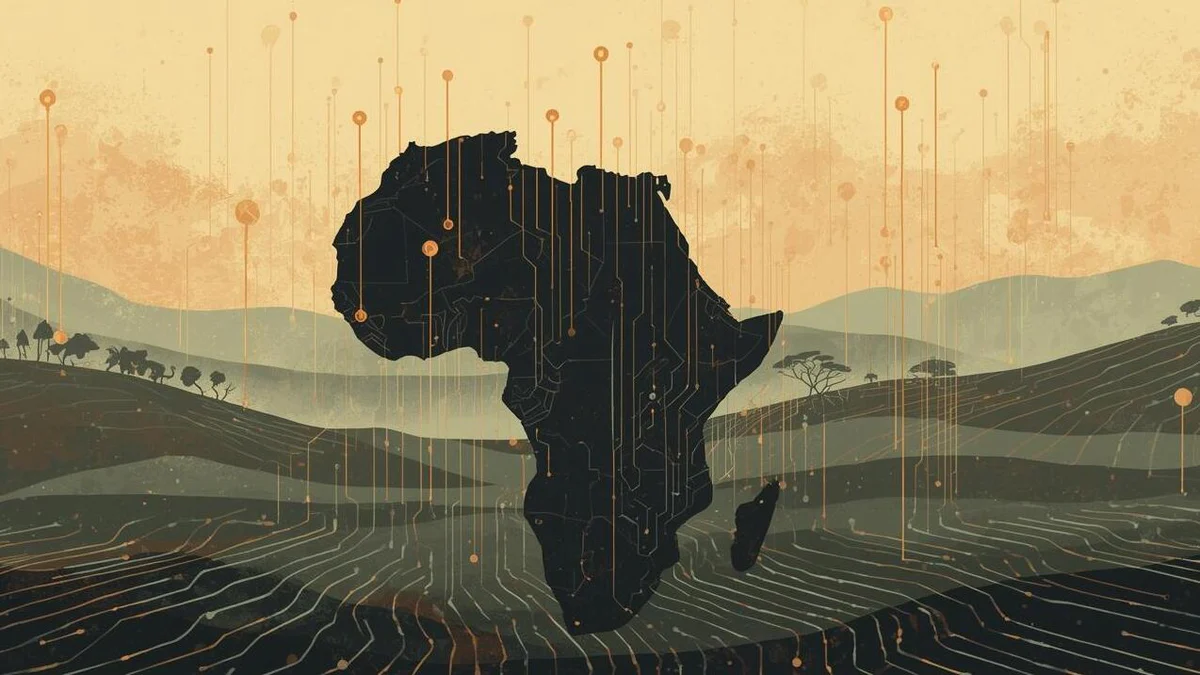African Languages Face Critical Battle in Global AI Development
As artificial intelligence reshapes the global technological landscape, African languages face a critical battle for survival and relevance. This analysis explores how the continent's linguistic diversity could transform from a perceived weakness into a strategic advantage in the AI era.

African tech developers working on local language AI solutions
As artificial intelligence (AI) rapidly evolves worldwide, a crucial question emerges: How can African local languages find their place in a technological ecosystem dominated by English, Mandarin, and Spanish? While the continent lags in industrial and scientific AI deployment, it simultaneously faces a strategic challenge: ensuring the survival, enhancement, and integration of its languages in tomorrow's digital universe.
Global Context and Technological Asymmetry
The United States, China, and to a lesser extent, Europe, currently concentrate most AI-related infrastructure, funding, and patents. This imbalance creates significant challenges for linguistic diversity and technological inclusivity:
- Research Concentration: 80% of scientific publications in the field come from fewer than ten countries
- Private Sector Dominance: Tech giants (Google, Microsoft, OpenAI, Baidu, Tencent) largely determine research and development priorities
- Infrastructure Gap: Access to supercomputers and large language models remains highly unequal
In this global landscape, Africa faces structural challenges in funding, training, and data availability. However, this deficit could become a strategic advantage if the continent successfully leverages its linguistic and cultural uniqueness.
The Critical Role of African Languages
Africa hosts over 2,000 languages, many fragmented and underrepresented in the databases used to train language models. This linguistic diversity presents both challenges and opportunities:
- Digital Erasure Risk: Languages like Wolof, Lingala, Swahili, and Hausa face progressive invisibility in digital spaces
- Cultural Identity Stakes: Losing linguistic anchoring threatens cultural transmission and cognitive sovereignty
- Transformation Opportunity: Developing structured corpora and targeted machine translation programs could turn this challenge into a differentiating advantage
Emerging Local Initiatives
Several African projects are working to bridge this divide:
- Masakhane: A pan-African network of researchers working on African language machine translation
- Academic Institutions: Universities in Nairobi, Johannesburg, and Accra investing in natural language processing laboratories
- Innovation Hubs: Local startups specializing in voice solutions adapted to African markets
Geopolitical and Economic Implications
The language question in AI development carries significant implications for Africa's future:
- Economic Impact: Risk of local actors being marginalized in the global digital economy
- Political Sovereignty: Potential weakening of states' ability to regulate AI usage
- Social Cohesion: Growing divide between globally connected elites and local language speakers
Africa's AI gap shouldn't be viewed solely as a disadvantage. The battle for local languages represents a crucial dimension of sovereignty and a strategic opportunity. With sustained investment in corpus development, engineer training, and infrastructure, Africa could emerge not as a follower but as an innovative player, capable of reinventing AI in alignment with its social, economic, and cultural realities.
Ella Thompson
Ella Thompson is a Wellington-based journalist covering politics, climate policy, and digital freedoms in the Pacific. With a background in law and international relations, she brings sharp analysis and a passion for civic accountability.
